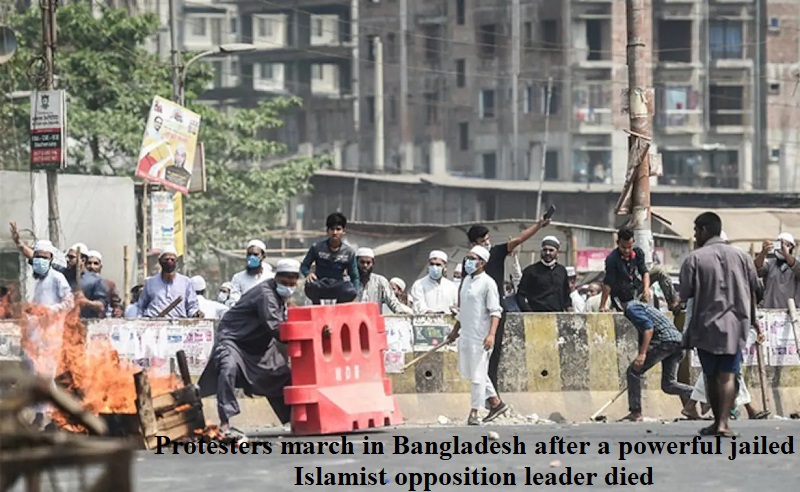
Following the passing of a prominent jailed Islamist opposition leader due to a heart attack at the age of 83, Bangladesh witnessed thousands of enraged protesters taking to the streets on Monday, chanting slogans against the government.
Delwar Hossain Sayedee, who held the position of vice president within the opposition Jamaat-e-Islami party, passed away in a prison hospital on Monday evening. This event comes a little over a decade after his conviction by a controversial war crimes tribunal, which had triggered one of the most fatal episodes of political unrest in the country’s history.
After his demise, a multitude of mourners and supporters gathered outside the hospital, rallying in remembrance of Sayedee. Chants of “Allahu akbar,” translating to “God is greatest,” filled the air, with a substantial police presence in the vicinity.
Amidst the mourning, numerous voices declared, “We won’t let the blood of Sayedee go in vain.” Many attributed blame to Prime Minister Sheikh Hasina’s government, which is in preparation for crucial general elections scheduled for January.
Reports from hospital authorities indicate that Sayedee had been admitted to the medical facility after suffering a heart attack in Kashimpur Prison, located outside the capital city of Dhaka, on Sunday. Brigadier General Rezaur Rahman, the hospital director, disclosed that Sayedee encountered another heart attack on Monday at 6:45 pm (1245 GMT) and succumbed at 8:40 pm. He had undergone five stent insertions in his arteries.
The Jamaat-e-Islami party announced Sayedee’s passing through its Facebook page, where it accused authorities of allowing him to become a “martyr” due to lack of adequate treatment in prison.
Sayedee was sentenced to death in 2013 by a war crimes tribunal on charges of murder, rape, and persecution of Hindus. This led to widespread protests by his supporters, resulting in over 100 fatalities. The party asserted that tens of thousands of its followers were subsequently arrested during a crackdown, and it was only this year that the party was able to resume public protests.
In 2014, Bangladesh’s Supreme Court ruled that Sayedee should spend “the rest of his natural life” in prison for his crimes during the 1971 liberation war against Pakistan.
Sayedee’s rise to prominence began in the 1980s when he began preaching in some of the nation’s leading mosques. His speeches drew massive crowds, and his Koranic preachings attracted a wide audience, including those not affiliated with Jamaat.
Jamaat-e-Islami was banned for much of the 1970s due to its support for Pakistan during the war, but it transformed into the country’s third-largest party and the largest Islamist outfit by the 1990s. Political analysts attribute Sayedee’s preaching to the party’s transformation into a significant force.

Post Your Comments